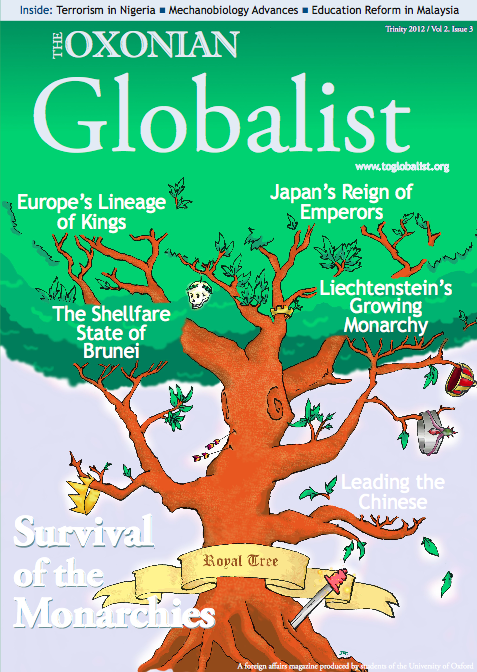Two events marked August 24, 2012 as a day worth remembering. The first is the sentencing of Anders Breivik by a Norwegian court. The second was the release of a short book in praise of Breivik’s hostility towards “extra-European” immigration by the French novelist Richard Millet.
I had first seen Millet on television, explaining with characteristic haughtiness his discomfort at being the only white male in a Parisian metro car. When I discovered his status as a celebrated writer I decided to see exactly what kind of work such a paranoid mind could produce.
To my great surprise, I found many of his books rather stimulating. Although most dissect the decline of Siom, his native village, Millet has written many books on other subjects, including travel, war, and the troubled French education system. The novel that most piqued my interest was The Negative Confession. Oozing with a grandiloquent fury common only to the loneliest of men, it tells of the year Millet spent fighting alongside the Christian Phalangists during the Lebanese Civil War. What most intrigued me was a blunt excerpt from the back cover:
“I had to kill men back then, as well as women, the elderly, and maybe children.”
Millet’s words become even bolder as one enters deeper into the text:
“I loved the explosion of violence, the moment of infinite silence before it begins, the moment when things take hold…”
“What honesty!” I told myself. Who else would be so quick to admit not only their solidarity with the “wrong side of history,” but their fondness for days amongst despicable people, even if their presence required indiscriminate murder among other inconveniences. Another admirable feature of Millet’s book is his candour in regards to his motivations. In one excerpt he notes that he knew absolutely nothing of the war prior to his arrival in Lebanon:
“I was not interested in any cause, not even the one of which I seemed to be a partisan.”
Nor does he pretend to care very much for the war’s historical and political origins:
“I cared little for the Palestinians, the Lebanese, the Syrians, the Israelis, the Muslims, and the Druze; if something enthralled me it was the sound of weapons, as I was persuaded that war and writing were sisters.”
He wanted an adventure, to gather material for a novel. At no point did I detect any indication of moral purpose. Despite my appreciation for Millet’s impenitent nihilism, I had another goal in mind when I finally decided to buy the book. I wanted to see how a man like Millet, so unapologetic in his racism and xenophobia, behaves in among people of different cultures.
Perhaps I will be disappointed. After all, Millet goes to Lebanon to fight beside other Christians. Even so, I told myself, there must be one passage where we interacts with Muslims or some other vastly foreign group. If so, did he treat them with grudging respect? Or does he show nothing but contempt? Or will there be something more natural; perhaps a spontaneous friendship facilitated by a few drinks, a jolly meal, or, at the very least, a humorous exchange of pornographic magazines.
I think something deeper, more complex than racism inhabits men like Millet. At one point, he begins to elucidate his opinion of Palestinians:
“Laying my life down meant nothing under these circumstances; I had as little respect for the Palestinians as I did for the Romas or the Native Americans, but I did not hate them; that is why I could kill them. I was born into this distance, this resentment, and what I saw in Beirut did little to convince me that things could change; on the contrary, my indifference towards these vanquished peoples originated less in my childhood than in my disgust for humanity as a whole. In the end, I abhorred all peoples. Killing was simultaneously banal and exalting, in short, fastidious; we participated backward in a universal beauty made of sound and fury, especially at night.”
What should we make of this passage? Are these words nothing more than the musings of an adolescent psychopath? Maybe. As horrifying as this text may be, it becomes quite enlightening in context. They key to understanding Millet’s odd mentality finally arrives in another provocative paragraph:
“Different races must stay where they belong; their blending will, at least on a large scale, be an abomination or a suicide. The entire world cannot become America,’ used to say Mme Malrieu, one of the wisest people I have had the luck of meeting, someone who loved humanity, who respected different races and religions, but who would have been horrified to see Europe invaded by what she would have called the new barbarians only thirty years after her death, to see these indigenous people become conquering barbarians themselves, to see mosques and Buddhist temples and other sectarian buildings rise up in the cities of Christian countries.”
Based on these two paragraphs, I believe that Millet’s attempt to distance himself from the assumptions of his childhood is deeply misguided. What are Mme Malrieu’s views but the purest embodiment of the kind of “distance” that defined Millet’s childhood? This signifies a point of view far removed from typical expressions of racism. In fact, I am tempted to suggest that this might not have been racism at all. I emphasize the “have been” for an important reason. Racism evolves just like any other ideology. What was once unworthy of such a qualification suddenly becomes so as a result of historical change. We must remember that people once lived in a closed world, one locked up and gated away not only by borders, but by the tyranny of monolingualism, the high cost of airfare, and finally, the drapes of a seemingly unshakable Iron Curtain. Moreover, the world was still recovering from two world wars and the violent last throes of colonialism, all of which demonstrated the bloody consequences of culture clash. Thus, it is conceivable that many people – like Mme Malrieu- were fascinated by the diversity of the world around them, without wishing to confront it face to face.
Needless to say, we live in a very different world. It was only fifteen years ago that my brand of cosmopolitanism –that of the globe-trotting dual citizen, and therefore, the perpetual foreigner- became so mundane. With the advent of globalization, people were expected –and needed- to accept foreigners with open arms. This was the inevitable, as well as the most desirable turn of events. Yet, this demand for tolerance has grown increasingly controversial in the context of widespread financial decline and global terrorism. Even so, I would argue that Westerners are much more understanding of foreigners than ever before.
Millet belongs to a dying breed, one which can simultaneously claim to respect, or remain indifferent, to other cultures while expressing a visceral disgust at the very thought of large-scale immigration. This is precisely where one can find the source of Millet’s bombast. Like many of those unfortunate to enough to be the last of their kind, Millet considers his solitude a sign of righteousness.










